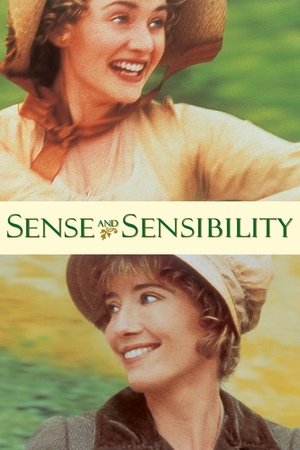
Sense and Sensibility
The briefest of cameos from Tim Wilkinson informs us that due to inheritance rules, the second “Mrs. Dashwood” (Gemma Jones) and her daughters are going to be at the mercy of his son upon his demise. That fellow (James Fleet) is actually quite a kindly soul, but his rather more mercenary wife “Fanny” (Harriet Walter) reckons they can be left to get by with just their annuity of £500. With daughters “Elinor” (Emma Thompson); “Marianne” (Kate Winslet) and “Margaret” (Emilie François) to keep, that’s going to be quite a task. Luckily, widower distant cousin “Sir John” (Robert Hardy) and his lively mother-in-law (Elizabeth Spriggs) invite them to lodge in a well-appointed cottage on their estate. That’s where the family settle and each of the girls gradually becomes embroiled in romance. For “Elinor” it’s the dashing but shy “Ferrars” (Hugh Grant) who takes her fancy. Talking of dashing, there’s also the charming “Col. Brandon” (Alan Rickman) who is keen on young “Marianne” - but her attentions are divided between him and the handsome doctor “Willoughby” (Greg Wise). Meantime, whilst all this courting and counter-courting is going on, the young “Margaret” is totally besotted on “Ferrars” too! I usually found Jane Austen stories tended to follow a fairly predictable pattern, but the potpourri of characters here are aided by some really quite witty dialogue and some glorious scenery and build together engagingly. There’s an amiable degree of charm, haplessness and political incorrectness on display too as the writer takes quite a swipe at the ridiculousness of so many aspects of life for and amidst the landed gentry and it’s middle class associates. The headline roles all deliver well enough, but it’s maybe the engaging dynamic between Hardy and Spriggs that raises most smiles for me. The costumiers and designers have crafted a classy looking production and the screen adaptation does wonders for a time when the mantra was definitely more “why use one word when you can use ten”.
